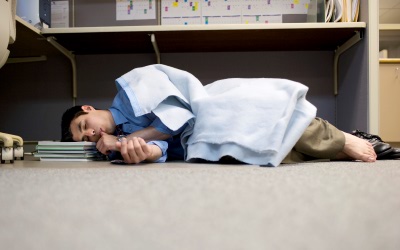Are Healthcare Professionals More at Risk of Workaholism?
Loving your job, and putting your all into it, may seem like a good sign of corporate wellness, but overworking may actually be putting your wellbeing at risk. This is according to a recent study of more than 400 employees in professional and administrative occupations, which found that while a certain level of “workaholism” can help you achieve optimum job effectiveness and positive health, extremes can be dangerous to your wellness.
Wayne Hochwarter, a professor of business administration at Florida State University and co-author of the study, commented, ‘We discovered that workaholics really struggle when they feel that they are alone or swimming upstream without a paddle.’ For the study, self-identified workaholics, who said they characteristically ‘feel guilty when taking time off,’ said that although they put in more effort than other workers, they also feel more tension. Moreover, these busy bees were more likely to help a co-worker even though most workaholics believed that colleagues felt entitled.
Eric Dickerson, managing director of executive search firm Kaye/Bassman International noted that the case may be particularly bad for those in the healthcare profession, as reimbursement cuts and changing requirements caused by the Affordable Care Act have forced the industry to do more with less. ‘This type of environment pushes those potential “workaholics” over the edge many times and others begin to see that extra work keeps you employed longer,’ he explained. ‘This issue spans the executive offices and clinical spaces as well. If you are considered an exempt employee, odds are you are pushing the envelope from either an internal “workaholic” perspective or an external push from the board, executive team or investors.’
Abhay Padgaonkar, president of Innovative Solutions Consulting, observed, ‘Unfortunately, with an expected influx of millions more patients into the healthcare system, things may get worse before they get better. I’m also seeing a more recent and dangerous trend where hospitals and medical groups believe that they can cut costs by employing fewer doctors and making them see more patients.’ Daniel Herrera, the study’s research associate, added, ‘Given the volatility in today’s work environment, the ability to work hard, contribute long hours and demonstrate value is at a premium. Thus, workaholism will likely remain alive and well for years to come.’


Comments are closed.